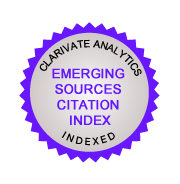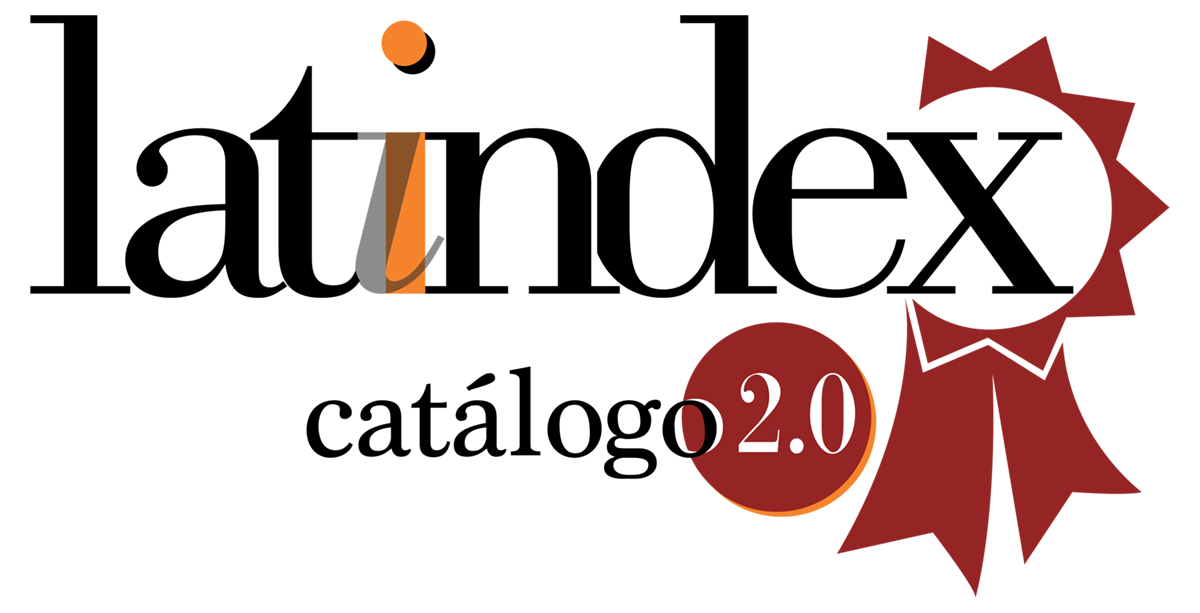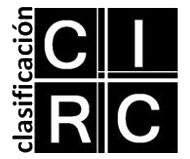Democracy in crisis: challenges and outlook
DOI:
https://doi.org/10.24215/16696581e776Keywords:
democracy, political culture, democratic values, Latin AmericaAbstract
Democracy is in crisis around the world and is facing its toughest test since the rise of fascism in the 1930s. The article analyzes the way in which its decline has developed with increasing intensity since the first decade of the century, with the stagnation and retreat of new democracies, the erosion of the established ones, the renaissance of the extreme right and the renewed vitality of autocratic regimes. The work examines the interpretations of this regression according to the main theoretical approaches and data from annual studies that monitor the state of democracy in the world. The paper explore the possible causes of democratic erosion -socioeconomic and technological change, globalization, culture shift and the new geopolitical context- and future prospects. The future is not determined and will depend on the ability of societies and governments to identify and solve the problems that are causing the crisis. The main challenge facing democracy is to demonstrate its ability to improve the lives of its citizens.
Downloads
References
Abramowitz, M. J. 2018. Democracy in Crisis. Freedom in the World 2018. Washington, DC: Freedom House.
Alexander, A. C. y Welzel, C. 2017. The Myth of Deconsolidation: Rising Liberalism and the Populist Reaction. Journal of Democracy. Online Exchange.
Armingeon, K. & Guthmann, K. 2014. Democracy in Crisis? The declining support for national democracy in European countries 2007-2011. European Journal of Political Research, 53, pp. 423–442.
Berman, S. 2022. Who is to blame? Citizens, elites and democracy. Social Europe, 5 September.
Berman, S. y Kundnani, H. 2021. The Cost of Convergence. Journal of Democracy, 32(1), pp. 22-36.
Bermeo, N. 2016. On Democratic Backsliding. Journal of Democracy, 27(1), pp. 5-19.
Bermeo, N. 2022. Questioning Backsliding. Journal of Democracy, 33(4), pp. 155-159.
Bosco, A. y Verney, S. 2012. Electoral Epidemic: The Political Cost of Economic Crisis in Southern Europe, 2010–11. South European Society and Politics, 17(2), 129–54.
Brownlee, J. 2007. Authoritarianism in an Age of Democracy. Cambridge: Cambridge University Press.
Brownlee, J. y Miao, K. 2022. Why Democracies Survive. Journal of Democracy, 33(4), pp. 133-149.
Carothers, T. 2002. The End of the Transition Paradigm. Journal of Democracy, 13(1), pp. 5-21.
Chenoweth, E. 2017. Trends in Nonviolent Resistance and State Response: Is Violence Toward Civilian-Based Movements on the Rise? Global Responsibility to Protect, 9 (1), pp. 86–100.
Coppedge, M., et al. (2020). Varieties of Democracy. Measuring Two Centuries of Political Change. Cambridge: Cambridge University Press.
Dalton, R. J. & Welzel, C. (Eds.) 2014. The Civic Culture Transformed. From Allegiant to Assertive Citizens. New York: Cambridge University Press.
Carothers, T. 2002. The End of the Transition Paradigm. Journal of Democracy, 13(1), 5-21.
Diamond, L. 2002. Thinking about hybrid regimes. Journal of Democracy, 13(2), 21-35.
Diamond, L. 2008. The Spirit of Democracy. New York: Holt.
Foa, R. S. y Mounk, Y. 2016. The Danger of Deconsolidation: The Democratic Disconnect. Journal of Democracy, 27(3), pp. 5-17.
Foa, R. S. y Mounk, Y. 2017. The Signs of Deconsolidation. Journal of Democracy, 28(1), pp. 5–15.
Foa, R. S., Mounk, Y. y Klassen, A. 2022. Why the Future Cannot Be Predicted. Journal of Democracy, 33(1), pp. 147-155.
Fuchs, D. y Klingemann H-D. (2019). Globalization, Populism and Legitimacy in Contemporary Democracy. En Van Beek, U. (Ed.) (pp. 3-22). Democracy under threat: The legitimacy question. Palgrave Macmillan.
Fukuyama, F. 1989. The End of History? The National Interest, 16, pp, 3-18
Goldberg, P. K. 2022. What Stopped Globalization? Project Syndicate, September 20.
Hirsh, M. 2022. The Year the Good Guys Struck Back. Foreign Policy, December 19.
Hoffmann-Lange, U. y Berg-Schlosser, D. 2022. Macro-And Micro-Level Analyses. En Van Beek, U. (Ed.) (pp. 89-140). Democracy under threat: The legitimacy question. Palgrave Macmillan.
Huntington, S. P. 1991. The Third Wave. Democratization in the Late Twentieth Century. Norman, OK: University of Oklahoma Press.
Inglehart, R. y Welzel, C. 2005. Modernization, Cultural Change, and Democracy. New York: Cambridge University Press.
Inglehart, R. 2016. Inequality and Modernization. Foreign Affairs, 95(1): pp. 2-10.
Inglehart, R. F. 2018a. Cultural Evolution. New York: Cambridge University Press.
Inglehart, R. (2018b). The Age of Insecurity: Can Democracy Save Itself? Foreign Affairs, 97(3), pp. 20-28.
Inglehart, R. 2021. Religion's Sudden Decline. New York: Oxford University Press.
Jorge, J.E. 2010. Cultura Política y Democracia en Argentina. La Plata: Edulp.
Jorge, J.E. 2015. La Cultura Política Argentina: una Radiografía. Question, 1(48): 372-403.
Jorge, J.E. 2016. Teoría de la Cultura Política. Enfocando el Caso Argentino. Question, 1(49): 300-21.
Jorge, J.E. 2017. Estado de Derecho y Valores Democráticos. Las Direcciones del Cambio Cultural. Question, 1(54), 172-206.
Jorge, J. E. 2018a. Ni “grieta” ni “degradación moral”: un contraste empírico del relato político en Argentina. Question, 1(59), 1-33.
Jorge, J.E. 2018b. Valores Democráticos para Tiempos de Crisis. Hallazgos de dos Teorías. Question, 1(57), 1-33.
Jorge, J. E., Lamanna, G. A., Leguizamón, M y Steciow, U. 2020. Dejando atrás el discurso de la “grieta”. ¿Cómo aumentar la confianza entre los argentinos? Question, 1(65), 1-33.
Jorge, J. E. 2020. Las causas de las protestas pacíficas en América Latina. Question, 2(67), pp. 1-55.
Klingemann, H-D., Berg-Schlosser, D., Hoffmann-Lange, U. y van Beek, U. (2022). The Return of History. En Van Beek, U. (Ed.) (pp. 447-471). Democracy Under Pressure: Resilience or Retreat? Cham-Zug: Palgrave Macmillan.
Krastev, I. y Holmes, S. 2019. The Light That Failed. Why the West is Losing the Fight for Democracy. New York: Pegasus.
Kruse, S., Ravlik, M. y Welzel, C. 2018. Democracy Confused: When People Mistake the Absence of Democracy for Its Presence. Journal of Cross-Cultural Psychology, 49, 1-21.
Laruelle, M. (Ed.). 2022. Conversations on Illiberalism. Interviews with 50 Scholars. Washington, DC: The George Washington University.
Levitsky, S. y Ziblatt, D. 2018. How Democracies Die. New York: Crown.
Levitsky, S. & Way, L.A. 2002. The rise of competitive authoritarianism. Journal of Democracy, 13(2), 51-65.
Levitsky, S. y Way, L. A. 2020. The New Competitive Authoritarianism. Journal of Democracy, 31(1), pp. 51-65.
Levitsky, S. (2020). "Las protestas de Chile están obligando a las élites a democratizar la democracia". La Tercera, 9 de enero.
Linz, J. J. y Stepan, A. (eds.) 1978. The Breakdown of Democratic Regimes. Baltimore: Johns Hopkins University Press.
Lu, J. y Chu, Y. (2021). Trading Democracy for Governance. Journal of Democracy, 32(4), 115-130.
Luce, E.E. 2017. The Retreat of Western Liberalism. New York: Atlantic Monthly Press.
Lührmann, A., Tannenberg, M. y Lindberg, S. I. 2018. Regimes of the World (RoW): Opening New Avenues for the Comparative Study of Political Regimes. Politics and Governance, 6(1), pp. 60-77.
Lührmann, A. y Lindberg, S. I. 2019. A third wave of autocratization is here: What is new about it? Democratization, 26(7), 1095-1113.
Lührmann, A., Medzihorsky, J., Hindle, G. y Lindberg, S. I. 2020. New Global Data on Political Parties: V-Party. Briefing Paper Nº 9. Gothenburg: V-Dem Institute.
Marzouki, M. 2022. Coup in Tunisia. Is Democracy Lost? Journal of Democracy, 33(1), pp. 5-11.
McCoy, J. y Somer, M. 2019. Toward a Theory of Pernicious Polarization and How It Harms Democracies: Comparative Evidence and Possible Remedies. The ANNALS of the AAPSS, 681(1), pp. 234-271.
Milanovic, B. 2016. Global Inequality. Cambridge: The Belknap Press of Harvard University Press.
Mounk, Y. 2018. The People vs. Democracy. Cambridge: Harvard University Press.
Mounk, Y. y Foa, R. S. 2018. The End of the Democratic Century. Foreign Affairs, 97(3), pp. 29-36.
Mudde, C. 2013. Three Decades of Populist Radical Right Parties in Western Europe: So What? European Journal of Political Research, 52, 1-19.
Mudde, C. y Rovira Kalwasser, C. 2017. Populism. A Very Short Introduction. New York: Oxford
University Press.
Mudde, C. 2019. The Far Right Today. Cambridge, UK: Polity Press.
Norris, P. e Inglehart, R. 2019. Cultural Backlash. Trump, Brexit, and Authoritarian Populism. New York: Cambridge University Press.
Norris, P. 2011. Democratic Deficit. Critical Citizens Revisited. New York: Cambridge University Press.
Norris, P. 2020. Measuring populism worldwide. Party Politics, 26(6), pp. 697-717.
Piketty, T. 2014. Capital in the Twenty-First Century. Cambridge: The Belknap Press of Harvard University Press.
Plattner, M. F. 2017. Democracy's Fading Allure. Journal of Democracy, 28(4), pp. 5-14.
Przeworski, A. 2019. Crises of Democracy. Cambridge: Cambridge University Press.
Puddington, A. 2007. Freedom Stagnation Amid Pushback Against Democracy. En Freedom House (pp. 3-13). Freedom in the World 2007. Lanham (MD): Rowman & Littlefield.
Rawnsley, A. (2018). Madeleine Albright: ‘The things that are happening are genuinely, seriously
bad’. The Guardian, July 8.
Repucci, S. y Slipowitz, A. 2022. The Global Expansion of Authoritarian Rule. Freedom in the World 2022. Washington, DC: Freedom House.
Rodrik, D. 2011. The Globalization Paradox. New York: Oxford University Press.
Rodrik, D. 2022. The New Productivism Paradigm? Project Syndicate, Jul 5.
Runciman, D. 2018. How Democracy Ends. London: Profile Books.
Scheppele, K. L. 2022. How Viktor Orbán Wins. Journal of Democracy, 33(3), pp. 45-61.
Singh, N. 2022. The Myth of the Coup Contagion. Journal of Democracy, 33(4), pp. 74-88.
Tooze, A. 2018. Crashed. How a Decade of Financial Crises Changed the World. New York: Viking.
Van Beek, U. (ed.) 2022. Democracy under Pressure. Resilience or Retreat? Cham-Zug: Palgrave Macmillan.
V-Dem Institute 2022. Autocratization Changing Nature? Democracy Report 2022. Gothenburg: The Varieties of Democracy Institute.
Welzel, C. & Kirsch, H. 2017. Democracy Misunderstood: Authoritarian Notions of Democracy around the Globe. World Values Research, 9 (1), 1-29.
Welzel, C. 2013. Freedom Rising. New York: Cambridge University Press.
Welzel, C. 2021a. Democratic Horizons: what value change reveals about the future of democracy. Democratization, 28(5), pp. 992-1016.
Welzel, C. 2021b. Why The Future Is Democratic. Journal of Democracy, 32(2), pp. 132-144.
Welzel C. 2021c. Meanings of democracy: mapping lay perceptions on scholarly norms. Zeitschrift für Vergleichende Politikwissenschaft, 15(1), 107-118.
Welzel, C., Kruse, S. y Brunkert, L. 2022. Why the Future Is (Still) Democratic. Journal of Democracy, 33(1), pp. 156-162.
Downloads
Published
How to Cite
Issue
Section
License
La aceptación de un original por parte de la revista implica la cesión no exclusiva de los derechos patrimoniales de los/as autores/as en favor del editor, quien permite la reutilización, luego de su edición (postprint), bajo una Licencia Creative Commons Atribución-NoComercial-CompartirIgual 4.0 Internacional (CC BY-NC-SA 4.0)
Acorde a estos términos, el material se puede compartir (copiar y redistribuir en cualquier medio o formato) y adaptar (remezclar, transformar y crear a partir del material otra obra), siempre que a) se cite la autoría y la fuente original de su publicación (revista y URL de la obra), b) no se use para fines comerciales y c) se mantengan los mismos términos de la licencia.
La cesión de derechos no exclusivos implica que luego de su edición (postprint) en Question las/os autoras/es pueden publicar su trabajo en cualquier idioma, medio y formato; en tales casos, se solicita que se consigne que el material fue publicado originalmente en esta revista.
Tal cesión supone, también, la autorización de los/as autores/as para que el trabajo sea cosechado por SEDICI, el repositorio institucional de la Universidad Nacional de La Plata, y sea difundido en las bases de datos que el equipo editorial considere adecuadas para incrementar la visibilidad de la publicación y de sus autores/as.
Asimismo, la revista incentiva a las/os autoras/es para que luego de su publicación en Question depositen sus producciones en otros repositorios institucionales y temáticos, bajo el principio de que ofrecer a la sociedad la producción científica y académica sin restricciones contribuye a un mayor intercambio del conocimiento global.















































